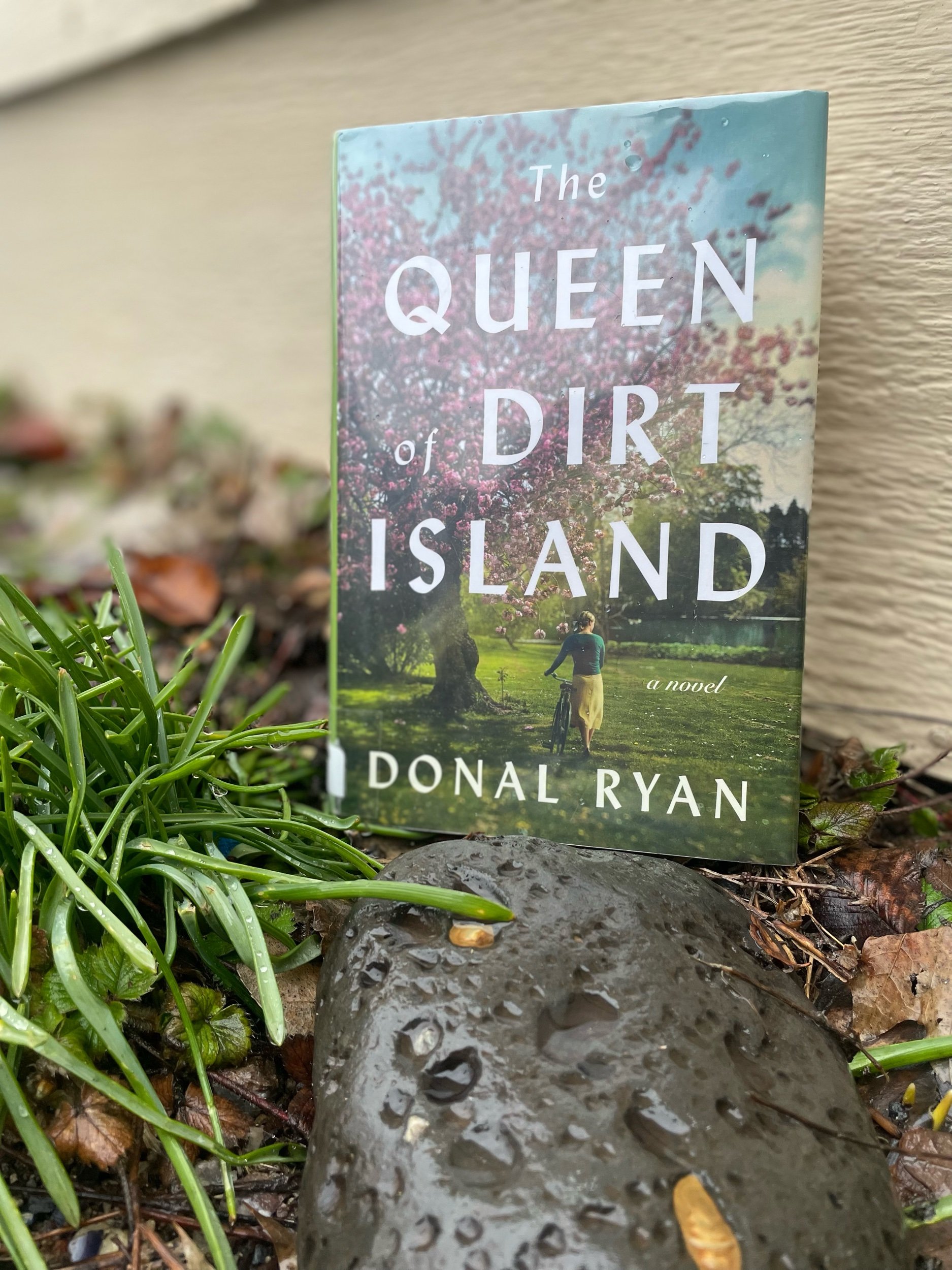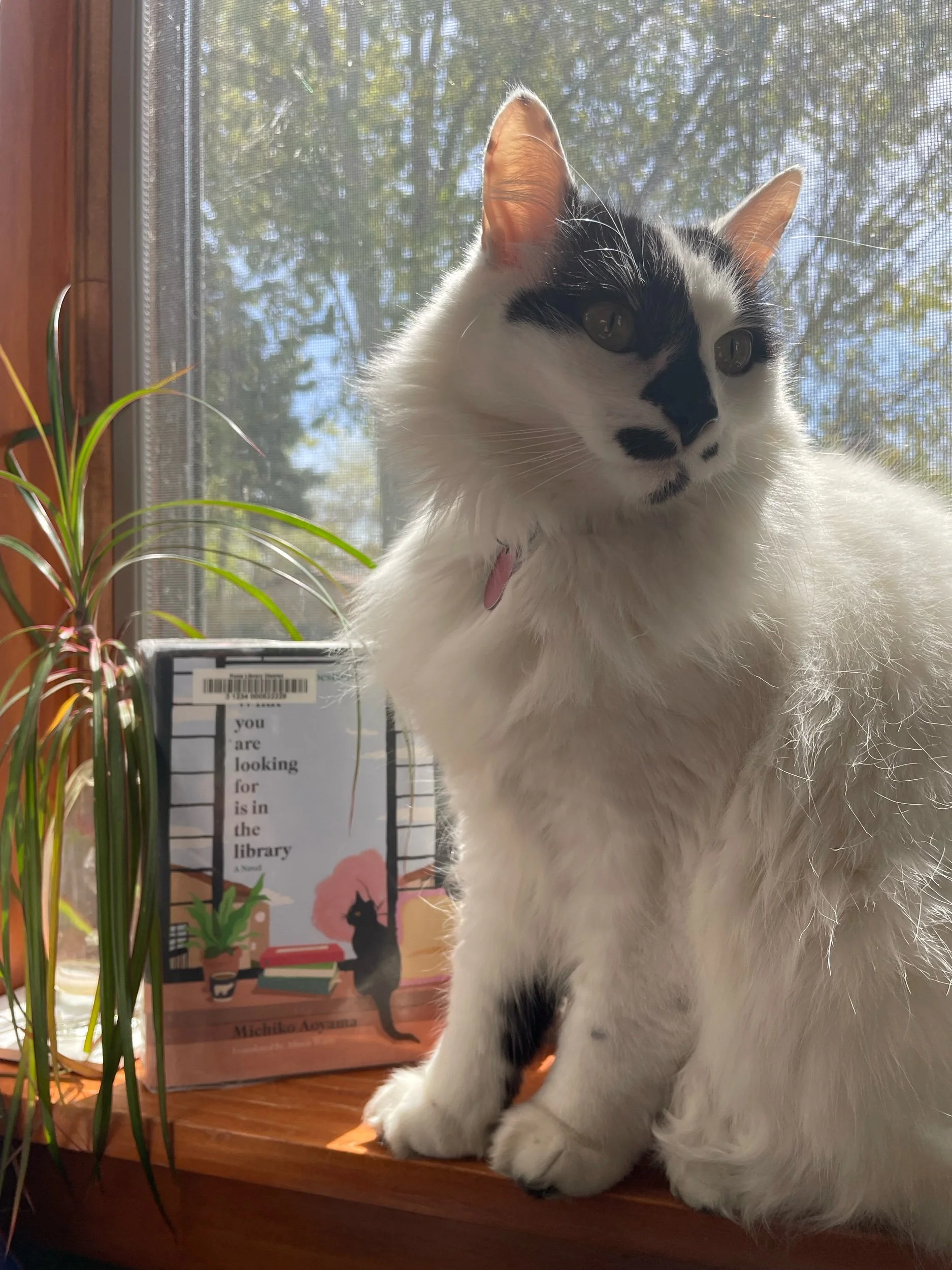The Postcard
The Postcard is a novel originally published in French (in 2021) by Anne Berest (translated into English in 2023). Inspired by events in Berest’s own family (an anonymously penned postcard arriving with nothing but the names of the family’s ancestors who died in the Holocaust), the novel is seeped in family. Indeed, the first-person narrator is a writer named Anne. Berest divides her novel into four sections—two lengthy ones and two brief— as she constructs story within story that explores the inherited trauma and intergenerational pain inherent to contemporary French Jews.
A mother (Lélia) telling her adult daughter (Anne) stories of their shared ancestors, pieced together by meticulous research, constitutes the first book (“Promised Land”). This first half of the novel focuses on the early twentieth-century lives of the Lélia’s grandparents and her mother, aunt, and uncle as children. Yet contemporary France in which Jews still experience plenty of anti-Semitic attitudes frames the story. In this book, a middle-aged woman attempts to unravel the mysteries of her grandmother’s past by reporting her research to her own daughter (in the days prior to the birth of her first grandchild). The story she tells begins in Russia before journeying to Poland then Palestine, and ultimately Paris. Unsurprisingly, disappointment, betrayal, and death punctuate the story of this Jewish family under the Vichy government of France in WWII. But there is also aid and kindness in the shadows as French citizens resist the Nazi occupation and its loathsome hatred.
Myriam, Anne’s grandmother, miraculously survives the annihilation of WWII, but she shares little of her experience with the generations of women who follow. It is a mysterious postcard, seemingly random and anonymous, arriving by post at Lélia’s home several years after Myriam’s death that catalyzes the action of the novel (and gives it its title). In the novel’s first half its first-person novelist heroine, Anne, is the audience; the second half transforms her into action as she picks up researching where her mother left off, ten years after her mother first told her the story. Anne discovers that Myriam’s war years were nomadic and difficult. In hiding, she fled Paris for Marseille then on to Provence where she spent much of the war in hiding. Eventually Myriam finds a place working with the Resistance, but her story is unclear. Like many survivors of the unspeakable, Myriam’s history is shrouded in silence. It is Anne, her granddaughter, the novelist, who picks up the loose threads of Myriam’s story and attempts to reweave the tapestry of her grandmother’s life.
Anne’s mother, Lélia, did the same for her grandparents’ lives in the novel’s first half. Indeed, The Postcard acknowledges a seemingly fundamental truth: trauma can be processed best from the remove of at least one generation. In other words, Lélia could unravel her grandparents’ stories, but not her mother’s. In turn, Anne could tackle Myriam’s (her grandmother’s) stories. At one point in the novel’s second half, Lélia tells Anne, “‘I'm sick to death of answering your questions. It's my past! My childhood! My parents! None of it has anything to do with you! Just move on, all right?’” (439). Indeed, the stories of our parent’s lives merge into our own stories at a point and, perhaps, that proximity makes digging deeper impossible. Beyond the acutely researched information about twentieth-century France, particularly leading up to and during WWII, The Postcard investigates the cyclical nature of experience within multiple generations of one family. It is a powerful book; one I think all of us will be more empathetic and compassionate having read.
Bibliography:
Berest, Anne. trans. by Tina Kover. The Postcard. Europa: New York, 2023.
A Few Great Passages:
“You have to understand that after the war, my grandmother Myriam joined the Communist Party, embracing the same revolutionary ideals her parents had when they lived in Russia. She believed that her children and grandchildren should be born into a new world, with no links to the old one. My grandmother, the sole survivor of her family by war's end, never set foot in a synagogue again. For her, God had died in the death camps” (234).
“How can you tell you're alive, when there's no one to witness your existence?” (393).
"’Man can't live without nature,’ Boris whispers to her, through the fox. ‘He needs air to breathe, water to drink, fruit to eat. But nature is quite able to live without man. Which proves just how superior it is to us’” (393).
"’Nature isn't just scenery,’ he would say. ‘It's not around you, but within you. It is inside you, just as you are inside it’” (394).
“Lélia is still just a fetus, but she can taste on her lips the bitterness of the bile a body produces when it experiences fear. The same bitterness Myriam tasted in her own mother's womb, when she heard the terrified thumping of Emma's heart as she faced down the Moscow police” (413).
“Something had to be learned from all these lives. But what?
Reflection. Examination. A deeper questioning of that word whose definition remained ever elusive.
What does it mean to be Jewish?
Maybe the answer was contained within another question:
What does it mean to wonder what it means to be Jewish?” (456).
“All I can tell you is that I'm the child of a survivor. That is, someone who may not be familiar with the Seder rituals, but whose family died in the gas chambers. Someone who has the same nightmares as her mother, and is trying to find her place among the living. Someone whose body is the grave of those who never had a proper burial” (456).
“[M]emory of an experience of danger so violent that sometimes I think I really lived it myself, or that I'll be forced to relive it one day. To me, / death always feels near. I have a sense of being hunted. I often feel subjected to a kind of self-obliteration. I search in the history books for the things I was never told. I can't read enough; I always want to read. My hunger for knowledge is never sated.
Sometimes I feel like a stranger here. A foreigner. I see obstacles where others do not. I struggle endlessly to make a connection between the thought of my family and the mythologized occurrence that is genocide. And that struggle is what constitutes me.
It is the thing that defines me. For almost forty years, I have tried to draw a shape that resembles me, but without success.
Today, though, I can connect those disparate dots. I can see, in the constellation of fragments scattered over the page, a silhouette in which I recognize myself at last: I am the daughter, and the granddaughter, of survivors” (456-57).
“I had trouble keeping track of all the different periods of history. This family was like an overlarge bouquet of flowers that I couldn't quite keep a grip on” (467).






